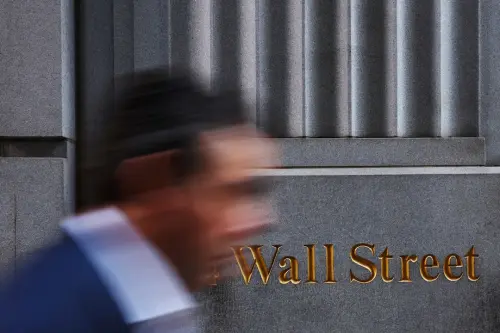Global stocks rallied, driven by gains in U.S. markets, while U.S. Treasury yields rose following reports that President Trump's tariff plan may adopt a more targeted approach, enhancing risk appetite.
Although Trump stated he may grant “a lot of countries” relief from automobile tariffs, he did not provide specific details.
"Investors are experiencing a slight sigh of relief, but at the same time, they are cynical about how long this may last," said Sam Stovall, chief investment strategist at CFRA Research. He noted, "The causes of this manufactured correction have not evaporated. They are tariffs and the potential impact on economic growth, inflation, and corporate profits."
Equities have faced pressure recently due to uncertainty surrounding potential levies and their possible negative effects on the global economy and corporate earnings. Economic indicators have also signaled a decline in consumer sentiment as concerns over tariffs increased.
On Monday, data showed that S&P Global's flash U.S. Composite PMI Output Index rose to 53.5 this month from 51.6 in February, indicating expansion. However, ongoing worries about tariffs and significant government spending cuts have continued to dampen sentiment, as the survey's business confidence measure dropped to its second-lowest level since 2022.
The Dow Jones Industrial Average increased by 597.97 points, or 1.42%, to 42,583.32; the S&P 500 rose by 100.01 points, or 1.76%, to 5,767.57; and the Nasdaq Composite climbed by 404.54 points, or 2.27%, to 18,188.59, reaching its highest point since March 7.
MSCI's global stock index gained 9.84 points, or 1.17%, to 851.83 after hitting a two-week high of 852.39. The index had fallen nearly 8% from its mid-February record through its March 13 closing low before breaking a four-week streak of declines last week.
Despite this, tariff uncertainty still impacted other global stock indexes; the pan-European STOXX 600 index fell by 0.13%. European shares had initially risen after data showed that HCOB's preliminary composite euro zone Purchasing Managers' Index increased to 50.4 this month from 50.2 in February, its highest level since August.
Trump plans to impose tariffs next week, but there are still questions about the magnitude of the duties and the specific countries that will be affected. Additionally, any country purchasing oil or gas from Venezuela will face a 25% tariff on exports to the United States.
The prospect of more targeted tariffs led to an increase in U.S. Treasury yields, with the yield on benchmark U.S. 10-year notes climbing by 8.7 basis points to 4.339%, marking its largest jump since February 12, following a slight increase last week, which ended a four-week decline.
Atlanta Federal Reserve President Raphael Bostic indicated that inflation will progress more slowly in the coming months and now expects the Fed to cut its benchmark interest rate by only a quarter point by year's end.
The dollar index, which measures the greenback against a basket of currencies, rose by 0.26% to 104.30, while the euro slipped 0.12% to $1.0801. The dollar gained 1.54% against the Turkish lira, following the pending trial of Istanbul Mayor Ekrem Imamoglu, President Tayyip Erdogan's main political rival, which ignited the largest protests in over a decade. Against the Japanese yen, the dollar strengthened by 0.9% to 150.65, while Sterling edged up 0.01% to $1.2916.
U.S. crude increased by 1.22% to settle at $69.11 a barrel, and Brent crude rose 1.16% to $73 a barrel, impacted by the 25% tariff on countries purchasing oil and gas from Venezuela.
